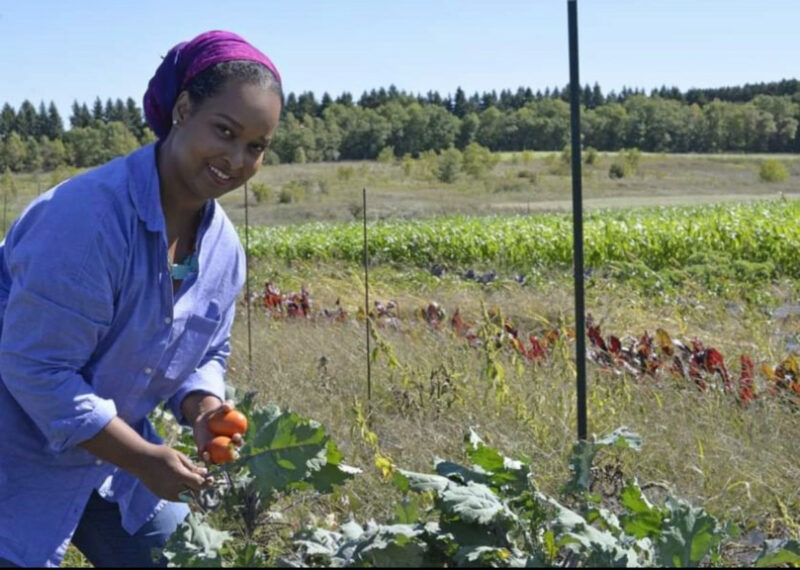
Written by Naima Dhore, Upstream Care for Place Fellow
Farming holds a personal significance for me. In Somalia, our connection to food was direct – fresh fish from the coast, abundant fruits and vegetables from our home garden, and fresh milk and eggs from neighbors. There were no processed foods; everything was local, organic, without labels, and, most importantly, delicious. Now, I’m recreating this with a twist locally here in greater Cambridge.
As a woman of color in this industry, I encountered numerous challenges, from land ownership to accessing resources. Despite facing setbacks in acquiring farmland for my business. I was able to preserve through several attempts but finally securing a piece of land will allow me to continue the work I love and grow my business. Empowering individuals of color with access to resources and the creation of generational wealth not only benefits them and their families but also positively impacts the community and culture. This empowerment can disrupt cycles of food insecurity, enhance educational opportunities, and contribute to overall economic stability. Moreover, a rise in representation within wealth and influence can bring diverse perspectives to the food and farming realm, nurturing a more inclusive community and culture.
Investing in women in agriculture, especially black women and those who are first-generation, is crucial because it addresses systemic barriers and inequalities they face. My personal experience navigating a system not designed for me has been incredibly challenging. Often, everything feels out of reach and overwhelming. I’ve made sacrifices and frequently find myself in spaces where I don’t feel welcomed or truly belong. By investing in women like me, we can break down these barriers, provide opportunities for advancement, and create a more inclusive agricultural sector that benefits everyone
It’s been quite the journey, and now I’m poised to embark on the next phase of my business. More importantly, I’ve reached a point where I can carefully select my projects and collaborations, saying no more often than yes. I’m prioritizing a healthy balance between my farm work, family, friends, and self-care like never before. It’s essential for me to maintain boundaries and adopt a holistic approach to a healthy lifestyle in order to sustain my work in the long run. I want to be a great role model to the next young generation of farmers.
What’s Your Upstream Story?
We share stories of stewardship written by and about Minnesotans like you! Share your story here.